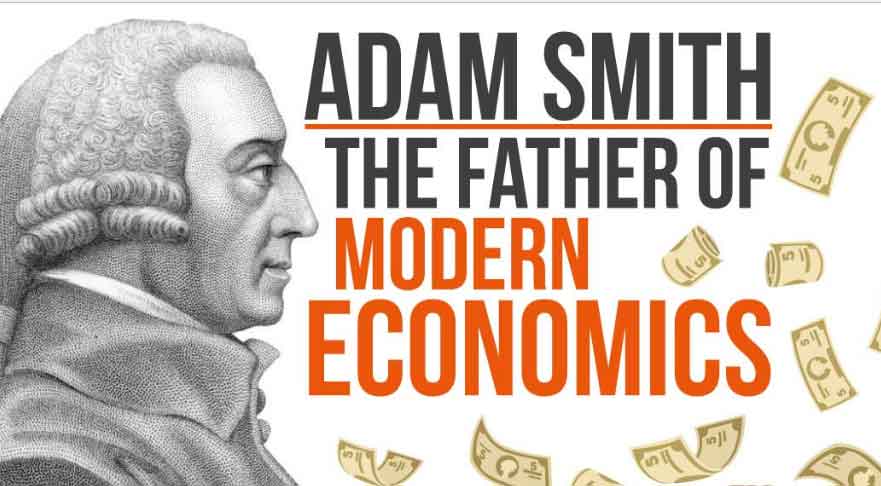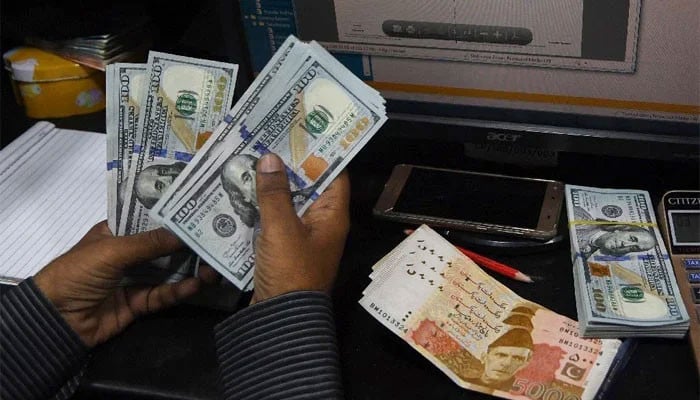Introduction
Dollar and Pakistan. The 1930s Great Depression gave the world some magisterial lessons. During those difficult times, a British economist dubbed J.M Keynes shone out as a pioneer of modern economics. His idea of “government intervention” assisted in laying the foundation of today’s macroeconomics. Global markets have hitherto leaned more on micro notions of consumer and firm behavior.
:quality(70)/cloudfront-eu-central-1.images.arcpublishing.com/thenational/QTWGBMPKSF5K2TQVUWWZX2J3TU.jpg)
Smithian Economics
Smithian economics, on the other hand, deplores government interference and preaches the laissez-faire doctrine. Because the world is now functioning on the Keynesian schema, and government intervention is heralded as a necessity for all states, even in good times. This usually has a detrimental impact on the economy.

But how can we see that government intervention or the free market is vital in Pakistan’s money market, where the dollar is designated a tradable commodity. The dollar’s hegemony was enshrined in a high-rise edifice at Bretton Woods, New Hampshire, in 1944. At the time, the worldwide currencies were pegged to the dollar, which was fixed to gold.
Dollar as a Global Currency
The dollar’s significance as a global currency is pivotal to the global market. The market value of the dollar relative to local currencies has a strong influence on the country’s debt, capital inflows and outflows, and, most importantly, exports and imports. Overvaluation or devaluation of the local currency versus the dollar portends either good or bad omens, depending on the country’s economic status.

Countries that want to grow exports intend to devalue their currency against the dollar to compete on a global scale. Overvaluation, on the other hand, has the capacity to cause mayhem. This may be accomplished by central bank involvement to keep the economy flourishing and the value of their currencies stable.
Dollar and Pakistan’s Lawmakers
Pakistan, is one of those countries where industrialists and parliamentarians have seized control over the economy. Aside from the intervention in the rupee value the dollar is also not left untreated. Despite the fact that the economy cannot operate in such a way or, if it does, cannot be sustained.
These lawmakers and magnates have a history of manipulating the price of the dollar in the money market by altering its supply. This intervention, which is driven by the intention of profit maximization or a desire to make a good impression on the public to gain votes, may succeed in the short term, but it will result in a more depressed economy in the long run.
Creating an Artificial Void
Parliamentarians and the Industrialists step out of line against national creating an artificial void interest by attempting to increase the value of the dollar. Subsequently, Private investors, both domestic and foreign, withdraw dollars from the money market and begin hoarding them. The dollar’s value skyrockets against the local currency, creating an artificial void.
High Market Prices
Supply gets skewed relative to demand, resulting in a stronger dollar against the local currency. This is described in economic terms as “too much money chasing too few goods,” and as a result, the same dollar is sold at high market prices. This may be done in response to any form of political unrest, but it is most typically seen in the pursuit of massive profits.
Artificial Drop in the Value of the Dollar
Democratic regimes, on the other hand, also have had an influence on the value of the dollar in a country. When the dollar appears to be overvalued relative to the local currency, governments either instantly from foreign reserves or through private individuals inject dollars.

This causes an artificial drop in the value of the dollar, giving the impression that the local currency is appreciating. This has happened in the last few days. The dollar fell by 7 to 8 rupees immediately after the coalition government assumed the charge. This was an artificial adjustment, to the value of the dollar prompted by the injection of a huge amount of dollars from reserves.
Long-Term Economic Disruption
The PTI administration depreciated the rupee against the dollar in 2019 for two reasons. One, to adjust the rupee’s overvaluation.And the other, to encourage the country’s exports. It is worth noting that the dollar gained ground against the rupee. Also as a result of international inflation driven by the pandemic and the Ukraine crisis.

Allowing the dollar to appreciate and refraining from meddling in the exchange rate was a sensible option. The two types of unlawful local acts stated above performed an exquisite job of helping the government to garner public support. So, fewer people are aware of such unlawful interventions that lead to long-term economic disruption.
Conclusion
To recapitulate, the dollar, like all other currencies, is only a medium of exchange rather than a tradable commodity. The market, not politics, should determine the value of the dollar. Because economies benefit more from a free-floating exchange rate.
Black market premium is an unlawful activity that needs a law to punish the culprits. Devaluation can be one way to assist growth in particular circumstances and grave needs. Negligence, either way, has the potential to destabilize the economy.
I'm Anum Shoaib Abbasi, MPhil Research student at the School of Economics (SOE), Quid-e-Azam University (QAU), Islamabad. My area of interest is the Political economy, Economic, and Development issues of Pakistan.








It’s my opinion that Pakistan as well as the world economy is established on paper money and interest. the valuation and devaluation of the economy are in the hands of some capitalists or elites. History is the witness of great slumps globally because the elites print more and more paper which devalues the demand for supply in the whole world…the so-called paper economy will face challenges in the whole world in coming days. nevertheless, those countries that established their economy on the base of gold without interest will protect their economy in the coming great recession. ..